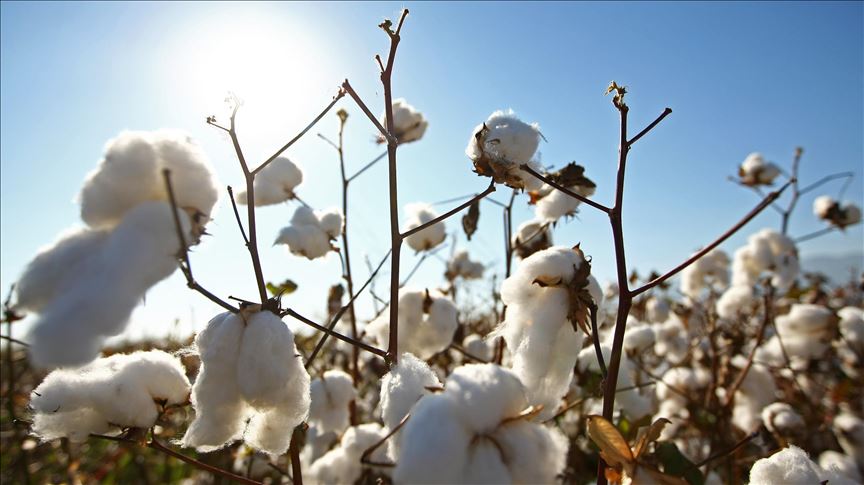China profiting off of forced labor in Xinjiang: report
Forced labor is used so ubiquitously in region that it is hard to separate its forced labor economy from its regular one

Washington DC
China has been using forced labor camps and prison labor to profit off of the cotton industry in its Xinjiang region, a non-profit organization said Thursday.
Xinjiang is home to 84% of the country's cotton and exports material to many of China's clothing manufacturers, according to a report by Citizen Power Initiatives for China (CPIC).
U.S. companies that have been using materials originating in these prison labor camps include Disney, Adidas, Ralph Lauren, Tommy Hilfiger and Nike, according to Louisa Greve, Director for External Affairs of the Uyghur Human Rights Project.
China has been using a number of methods to conceal the identity of these camps, however, including changing their names, disguising them as schools and trading companies and creating "layers of complex ownership structures".
"There are obvious attempts to conceal from the outside world [China's] actual plan," Greve said at a panel hosted by CPIC Thursday.
Tahir Hamut, like other members of the Uighur Muslim ethnic minority growing up in Xinjiang, began working in a labor camp during elementary school at the command of the Chinese government.
Since that time, Hamut was arrested and sent to a re-education camp, where again he was forced into doing unpaid labor where he completed various tasks such as making bricks, shoveling gravel and picking cotton.
"Everyone is forced to do all types of hard labor or face punishment," he said. "Anyone unable to complete their duties will be beaten."
Hamut eventually escaped to the U.S. with his family in 2017, but his brother was subsequently arrested by Chinese authorities.
Many Uighurs in Xinjiang grew up like Hamut, where a prison-based economy has helped the Chinese Communist Party earn profits in the cotton industry without having to pay worker wages, according to CPIC’s report.
There are an estimated 500,000 to 800,000 Uighur prisoners working in these camps, the report says.
"Because forced labor is used so ubiquitously throughout Xinjiang, it is very difficult to separate Xinjiang's forced labor economy from its regular economy," it said.
"Based on our findings, governments, companies and consumers should assume that any cotton products sourced from China are a product of China's cotton gulag."
China's Xinjiang region is home to around 10 million Uighur Muslims. The Turkic Muslim group, which makes up around 45% of Xinjiang's population, has long accused China's authorities of cultural, religious and economic discrimination.
Up to one million people, or about 7% of the Muslim population in Xinjiang, have been incarcerated in an expanding network of "political re-education" camps, according to U.S. officials and UN experts.
In a report last September, Human Rights Watch accused Beijing of carrying out a "systematic campaign of human rights violations" against Uighur Muslims in the region.
Anadolu Agency website contains only a portion of the news stories offered to subscribers in the AA News Broadcasting System (HAS), and in summarized form. Please contact us for subscription options.







